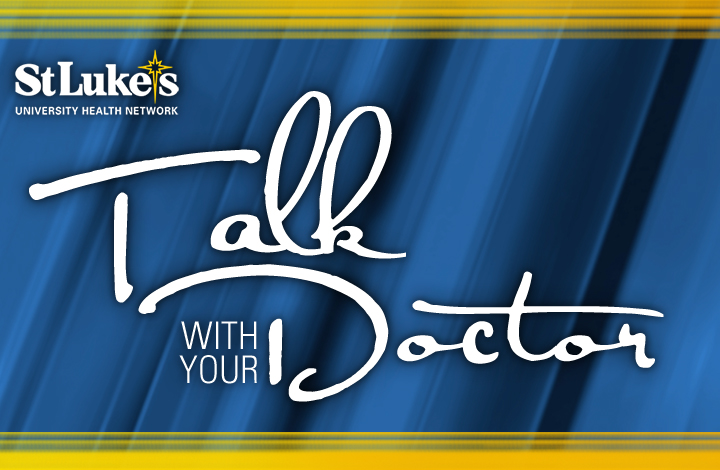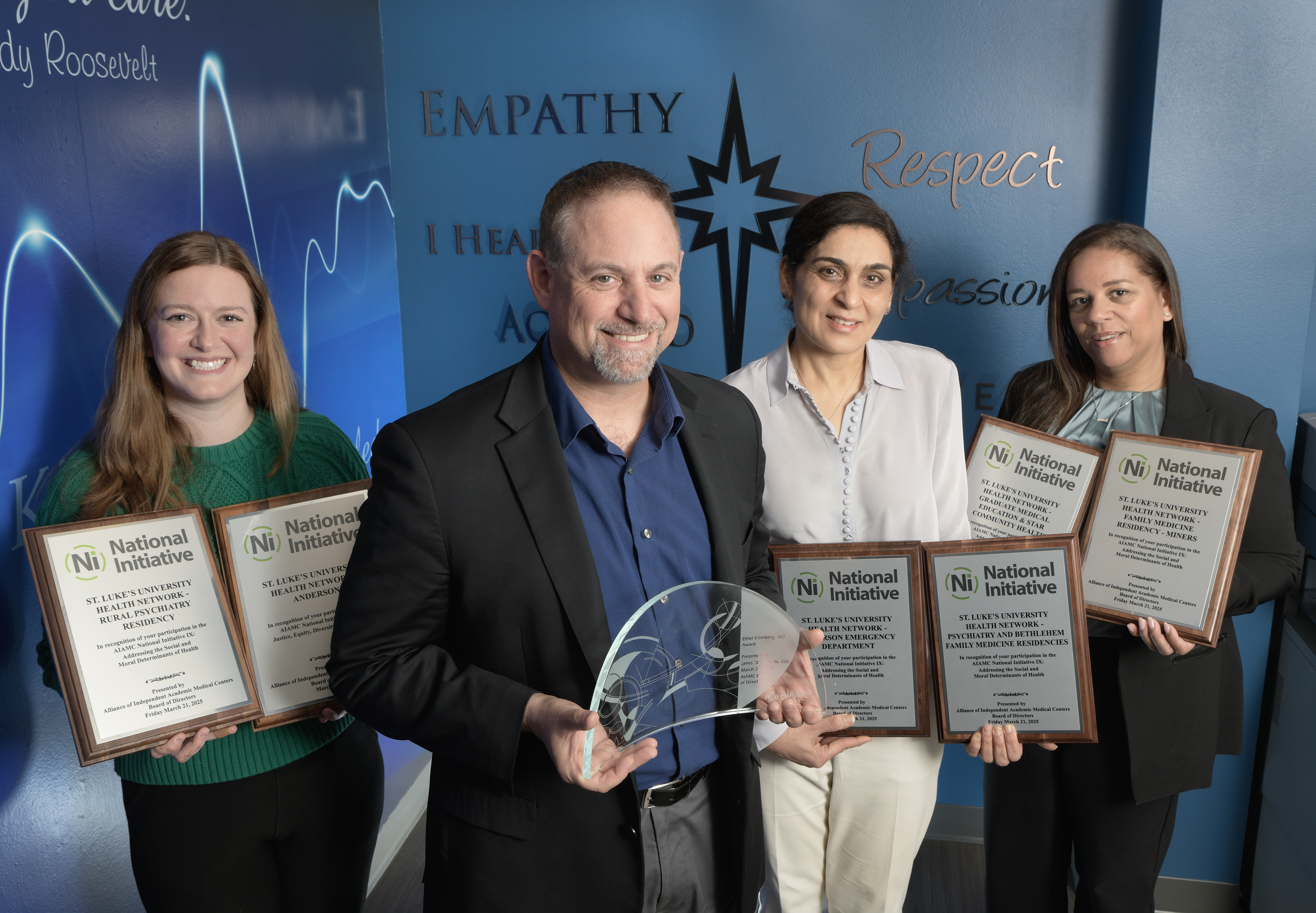St. Luke's Offers Guided Eye Movement, Used by Prince Harry, to Help Patients Cope with Trauma
June 23, 2021

Prince Harry recently told Oprah during an interview recently that being treated with a therapeutic modality called Eye Movement Desensitization and Reprocessing (EMDR) helps him cope with the trauma of losing his mother when he was young.
EMDR is a 30-year-old guided eye movement intervention that St. Luke’s psychotherapist Carol Olzinski, LCSW, uses with patients who have unresolved trauma that causes emotional and physical symptoms. She says EMDR is “definitely where psychotherapy is going, because it treats the whole person by involving the brain, physical body and mind.” She is the only behavioral health provider at St. Luke’s trained to use EMDR and among a few in the region and country.
In cases like Prince Harry’s, the memory of a traumatic event that remains unprocessed can spark an unpleasant or harmful emotional and bodily response like anxiety, eating disorders, substance abuse, pain and other chronic physical symptoms.
During a session lasting 45-90 minutes, a patient briefly describes a traumatic event that provokes a negative emotional and physical response. Olzinski then guides the patient’s eyes back and forth in order to bilaterally stimulate the brain. This is done at different rates of speed in a series of eye movement sets that enables the brain to naturally reprocess the traumatic material. Patients can also be taught the “butterfly hug,” in which, with arms across the chest, they alternately tap their shoulders to achieve the same benefit. The reprocessed memory remains but often is less disturbing to the patient. In addition, the positive effect of reprocessing a single memory often reduces other associated painful memories.
Research suggests that EMDR may mimic the benefits of REM (rapid eye movement) sleep during which the brain reprocesses and resolves a day’s actions, thoughts and feelings.
Prince Harry, who would feel painfully anxious each time he flew into London as he recalled the shock of Princess Diana’s death in a car crash in 1997, says EMDR “cleans my hard drive.”
Following a guided eye movement session, “A patient often feels a sense of peace,” explains Olzinski, who adds that the event no longer triggers such intense emotional and physical reactions.
A simple self-care activity, like a verbal affirmation (“I am safe now” or “I am powerful”), or self-applied bilateral stimulation, such as tapping on one’s shoulders, can help reinforce the reprocessing.
“While conventional ‘talk therapy’ can take months to years to treat traumatic memories and associated emotional and physical symptoms, EMDR is a quicker way to promote healing,” Olzinski says.
***
Media Contact:
Sam Kennedy, Corporate Communications Director, 484-526-4134, samuel.kennedy@sluhn.org
About St. Luke’s
Founded in 1872, St. Luke’s University Health Network (SLUHN) is a fully integrated, regional, non-profit network of more than 16,000 employees providing services at 12 hospitals sites and 300+ outpatient sites. With annual net revenue in excess of $2.5 billion, the Network’s service area includes 11 counties: Lehigh, Northampton, Berks, Bucks, Carbon, Montgomery, Monroe, Schuylkill and Luzerne counties in Pennsylvania and Warren and Hunterdon counties in New Jersey. Dedicated to advancing medical education, St. Luke’s is the preeminent teaching hospital in central-eastern Pennsylvania. In partnership with Temple University, St. Luke’s established the Lehigh Valley’s first and only regional medical school campus. It also operates the nation’s longest continuously operating School of Nursing, established in 1884, and 38 fully accredited graduate medical educational programs with 347 residents and fellows. St. Luke’s is the only Lehigh Valley-based health care system to earn Medicare’s five- and four-star ratings (the highest) for quality, efficiency and patient satisfaction. St. Luke’s is both a Leapfrog Group and Healthgrades Top Hospital and a Newsweek World’s Best Hospital. U.S. News & World Report ranked St. Luke’s #1 in the Lehigh Valley and #6 in the state. Three of IBM Watson Health’s 100 Top Hospitals are St. Luke’s hospitals. St. Luke’s flagship University Hospital has earned the 100 Top Major Teaching Hospital designation from IBM Watson Health nine times total and seven years in a row, including in 2021 when it was identified as THE #1 TEACHING HOSPITAL IN THE COUNTRY. In 2021, IBM Watson Health also named St. Luke’s among the 15 Top Health Systems nationally. Utilizing the Epic electronic medical record (EMR) system for both inpatient and outpatient services, the Network is a multi-year recipient of the Most Wired award recognizing the breadth of the SLUHN’s information technology applications such as telehealth, online scheduling and online pricing information. St. Luke’s is also recognized as one of the state’s lowest cost providers.
Read More NewsLatest News


April 10, 2025
National Recognition for SLUHN Graduate Medical Education

April 09, 2025
In Safe Hands Award

April 08, 2025